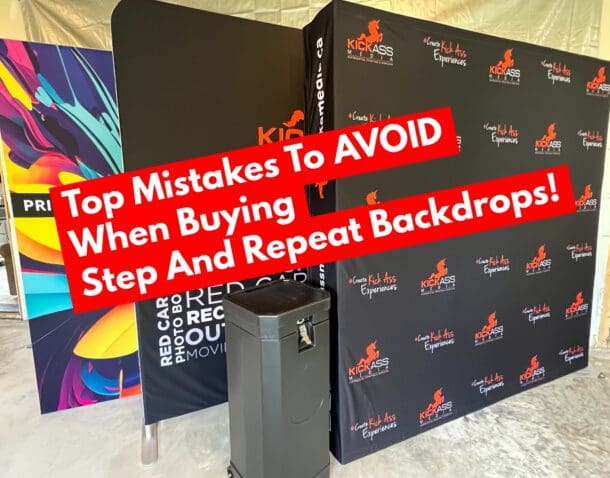Picking the right material for your step and repeat comes down to knowing what your client, photographers, guests and sponsors expect.
Photographers typically face two challenges when photographing a step and repeat:
1) Big step and repeats needs to be either stretchy or rigid to avoid billowing, wrinkles and waves
The first challenge is framing the crowd. Picking the right height and width is critical to ensure that your groups are properly framed. Each material responds differently to adjustments in size. Materials that have no stretch, such as vinyl, are only ideal for smaller backdrops. Larger backdrops are ideally done on a stretch material. This ensures that any wrinkles, waves or billowing can be stretched out.
Some people side step this problem by using rigid materials – such as Gatorboard or Sintra. While ideal in some applications, the challenge with rigid materials is transportation (4′ x 8′ or 5′ x 10′ sheets) as well as the visibility of seams between panels.
2) Low lighting conditions require the use of flat and ideally fabric step and repeat materials
In low lighting conditions, photographers use flash. Even when not used, light sources may cast a less than perfectly flat light on your step and repeat. When vinyl materials are used, the result is a high visibility of any imperfections (waves, billows and wrinkles). There is also an overall sheen that can create glare and get in the way of people being able to see the logos.








